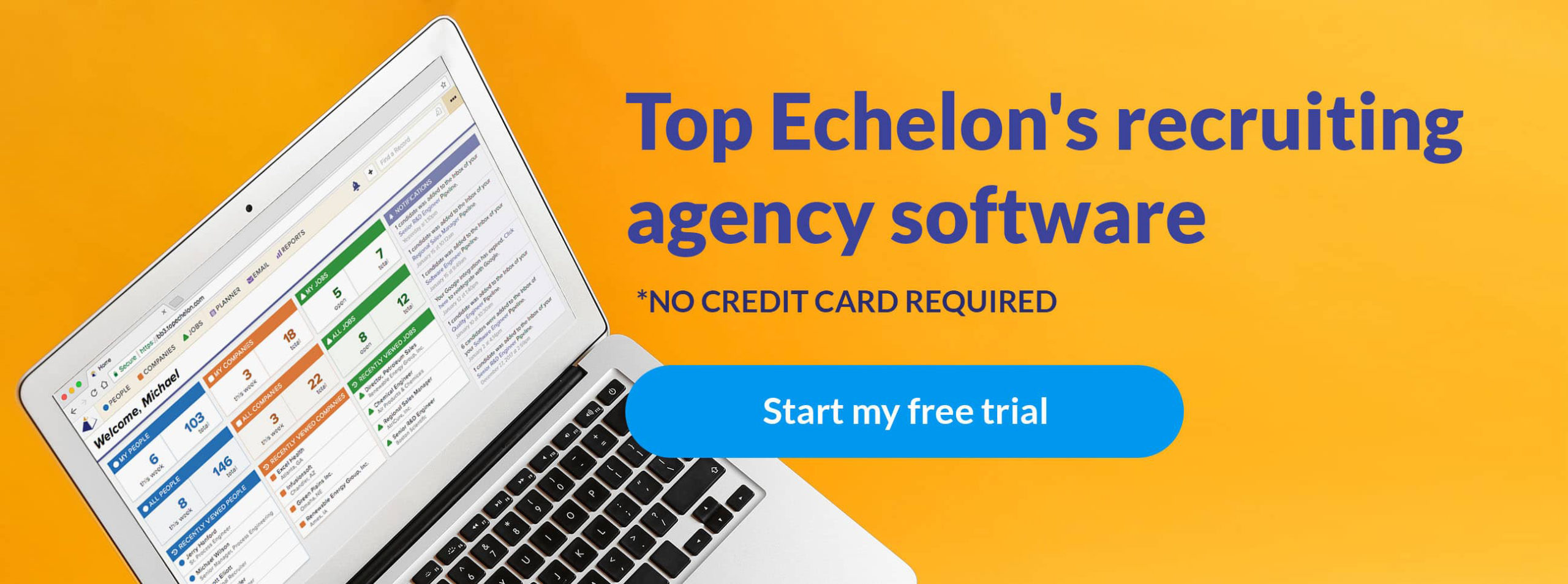Posting job descriptions usually leads to an influx of resumes and cover letters from interested applicants. But when you begin the sourcing stage of the hiring process, you might also ask candidates to complete an employment application form.
A job application form can be a great tool to help you narrow down candidates early on. If you also ask for a resume, these forms help you verify that the submitted information is consistent. Consider creating an employment application form to fill your next job order.
What is an employment application form?
An application for employment is a form that asks candidates information about themselves to gauge whether they are a good fit for a job. If you require applications, candidates must submit them to apply for a job. Employment application forms might be needed instead of or in addition to resumes.
You can include a simple employment application on the job posting, your client’s website, and your website. If you provide a fillable form, the candidate can submit their application via the website. Or, the candidate might email it to you.
After receiving an employment application form, you must maintain records to comply with federal regulations. Generally, you have to keep job application forms on record for at least one year.
Job application vs. resume
Some companies and recruiters ask candidates to submit either a job application or resume. So, what’s the difference?
A job application asks specific information about a candidate whereas a resume is created entirely by the candidate. The candidate can choose which information to include and omit from their resume. But, they should answer all questions on a job application to be considered for a role.
Asking a candidate to send their resume and complete a job application can give you more information about the job seeker. And, you can cross-reference their information. Using both documents might give you more insight into who the candidate is. Also, you can use the information found on a resume and application to tailor future questions towards the candidate.
What to include in a standard employment application
Employment application forms ask for personal information, as well as information about a candidate’s education, experience, and references.
You can create a standard employment application template to simplify your responsibilities. Take a look at some of the information you might ask applicants for:
- Legal name
- Address, phone number, and email address
- Eligibility to work in the U.S.
- Schools attended, degrees, graduation dates
- Qualifications
- Availability (when can the candidate start working)
- Previous companies employed at
- Previous positions held
- Previous dates of employment
- Permission to contact previous employer
- Desired salary
- References
Many job application forms also ask questions so you can get to know a little more about a candidate. The questions you ask might differ between job orders. Here are some questions you can include on an employment application form:
- Why do you want to work for [Company]?
- Tell me about a time when you had to make a difficult decision.
- Why do you want to leave your current job?
- Can you tell me about your most recent experience working with a team?
- Describe your ideal supervisor.
- Tell me about an accomplishment you are most proud of.
- What are your strengths, and how would they benefit this position?
It might be a good idea to ask only a few important questions. As you move the candidate through the pipeline, you can ask more traditional and behavioral interview questions.
What not to ask on the application form for job
You should be cautious when asking applicants for information. You should never ask anything that is illegal or confidential.
Do not ask candidates questions about race, sex, age, religion, or disability. This could lead to unintentional discriminatory behavior, which could result in a lawsuit.
Recently, many states have prohibited companies from asking candidates what their current or most recent salaries are. Do not ask the candidate to tell you what they are earning. But, you can ask them what their salary expectations are. Check with your state for more information.
In some states, it’s also illegal to ask candidates if they have ever been convicted of a crime on the employment application form. Make sure you know your state’s laws before drafting the form.
Why should you use an application form in your recruiting process?
Not every recruiter uses an employment application form. But, here are some reasons you may benefit from incorporating an application form for job into your recruiting process.
Using a standard application form makes it easier to compare candidates. Employment application forms ask each candidate the same questions. As a result, you will receive the same information, making it easier to determine which candidates stand out.
Each job order you recruit for gives you the opportunity to grow your candidate pool. With an application form, you can have candidate information on hand in case a future position opens up. And, you can add their information to your recruiting database to keep candidate files accessible and organized.






